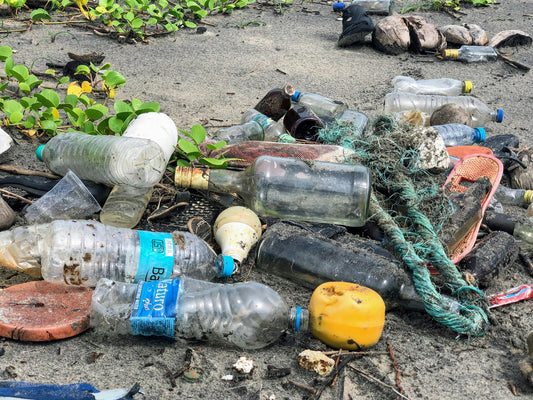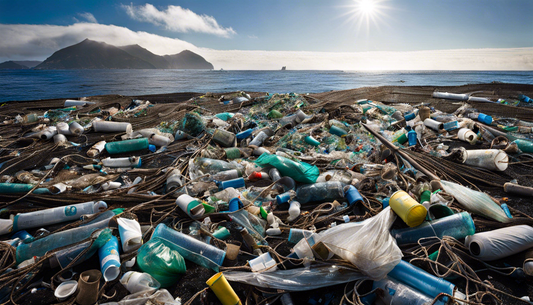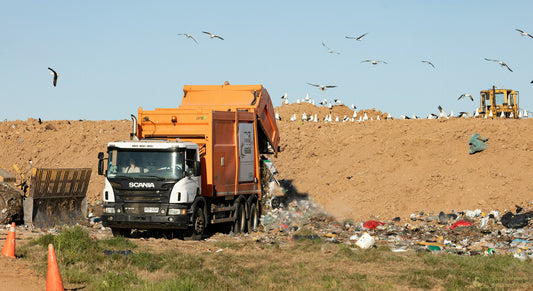Share
Time To Clean Up: Cruise Ships on the Great Barrier Reef:
Environment enthusiasts and tourism operators on the Great Barrier Reef are calling for stronger pollution regulations for cruise liners that visit the World Heritage area. They believe that the rising number of passenger cruises and worries about toxic discharge into the water are concerns that must be addressed.
Outdated Regulations and the "Clean-up Act":
The Whitsunday Conservation Council has pointed out that the current definition of marine waste, which has remained the same since the 1970s, does not consider the impact of sulphur “scrubbers” that have become commonplace in the shipping industry. Sulphur scrubbers are designed to lower emissions in the atmosphere by purging chemicals into the ocean. This has led to concerns that they could impact local reefs. As a result of growing awareness, calls are being made for a 'clean-up act'.
Is Increased Tourism in the Great Barrier Reef a Concern?:
There has been noticeable growth in the number of cruise ships visiting the Great Barrier Reef. However, there remain many questions about the impact of pollution on the local reefs. There are important discussions to be had about the potential damage these toxins could be causing to wildlife and water quality in the popular tourist destination.
More than Meets the Eye:
While some argue that the discharges from ships have minimal impact on the marine environments and can be easily diluted, others bring attention to a 2021 study that found scrubber effluent to be more toxic than crude oil. There is also concern about the sheer volume of effluent being dumped into sensitive marine environments. This is why many conservationists are calling for modern regulations.
Future Steps for Cruise Ships:
In light of all this, it does not mean we should ban the cruise ship industry. Regulating bodies are being appealed to update regulations, making it mandatory for ships to retain waste and scrubber effluent while inside the marine park. There is also the suggestion that cruise ships should use carbon offsets to account for their emissions in an effort to protect the health and biodiversity of the reef.
Environment enthusiasts and tourism operators on the Great Barrier Reef are calling for stronger pollution regulations for cruise liners that visit the World Heritage area. They believe that the rising number of passenger cruises and worries about toxic discharge into the water are concerns that must be addressed.
Outdated Regulations and the "Clean-up Act":
The Whitsunday Conservation Council has pointed out that the current definition of marine waste, which has remained the same since the 1970s, does not consider the impact of sulphur “scrubbers” that have become commonplace in the shipping industry. Sulphur scrubbers are designed to lower emissions in the atmosphere by purging chemicals into the ocean. This has led to concerns that they could impact local reefs. As a result of growing awareness, calls are being made for a 'clean-up act'.
Is Increased Tourism in the Great Barrier Reef a Concern?:
There has been noticeable growth in the number of cruise ships visiting the Great Barrier Reef. However, there remain many questions about the impact of pollution on the local reefs. There are important discussions to be had about the potential damage these toxins could be causing to wildlife and water quality in the popular tourist destination.
More than Meets the Eye:
While some argue that the discharges from ships have minimal impact on the marine environments and can be easily diluted, others bring attention to a 2021 study that found scrubber effluent to be more toxic than crude oil. There is also concern about the sheer volume of effluent being dumped into sensitive marine environments. This is why many conservationists are calling for modern regulations.
Future Steps for Cruise Ships:
In light of all this, it does not mean we should ban the cruise ship industry. Regulating bodies are being appealed to update regulations, making it mandatory for ships to retain waste and scrubber effluent while inside the marine park. There is also the suggestion that cruise ships should use carbon offsets to account for their emissions in an effort to protect the health and biodiversity of the reef.
We hope you enjoyed this article. Please feel free to leave a comment below if you want to engage in the discussion.
If you want to read more like this, make sure to check out our Blog and follow us on Instagram. If you are interested in truly sustainable products, check out our Shop.
Check out the original source here.








